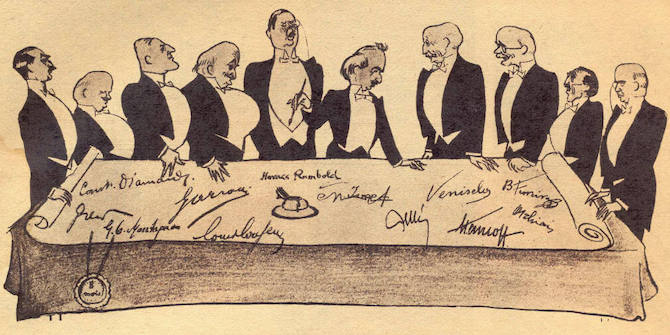by Nahwi Saeed

For the past three decades, there has been persistent campaigns by activists and civil society organisations to prosecute those complicit in the Anfal Genocide in Iraqi Kurdistan in 1988, in which between 50,000 and 182,000 people were killed. The campaigns usually intensify in the run-up to the 14 April anniversary. The campaigners accuse the Kurdistan Region of Iraq (KRI)’s two main ruling parties, the Kurdistan Democratic Party (KDP) and the Patriotic Union of Kurdistan (PUK), of protecting former Jash (collaborators) and Mustashars (advisors) who aided the Ba‘ath regime during the genocide. This long-standing issue has been a hindrance to realising genuine reconciliation within Kurdish society.
In 1991, the Kurdistan Front coalition declared an amnesty for all collaborators. Proponents of the amnesty argue that such a decision was necessary at the time, with collaborators outnumbering the Peshmerga (the Kurdish military resistance), and the move preventing a spiral of revenge killings. However, the unilateral amnesty gave the perpetrators complete impunity at the expense of victims’ expectations of justice, and has thus obstructed the reconciliation process within Kurdish society. From the very beginning, Kurdish politicians gave priority to political issues over the prospect of reconciliation.
After the 1991 uprising, the Jash and Mustashars were integrated into KDP-PUK power structures. Their military experience was indispensable during the intra-Kurdish civil war from 1994–8 and they have proven to be a significant electoral constituency since 1992. After the fall of the Ba‘ath regime and the prosecution of its leaders in Iraq, the question of dealing with regime collaborators resurfaced again in the KRI.
In 2010, the Supreme Iraqi Criminal Tribunal issued arrest warrants for 258 accused Kurdish Mustashars for their involvement during the Anfal Campaign and sent the warrants to the relevant authorities in the Kurdistan Regional Government (KRG). The KRG took no action and none have been arrested so far, thanks to their connections with the two ruling parties. High-ranking Mustashar and Jash leaders still walk freely in the region without any threat of accountability, angering the relatives of Anfal victims, who have at times boycotted the annual commemorations.
Addressing injustices of the past is crucial to societal reconciliation, trust in government, lasting peace and the stable transformation of post-conflict societies. A variety of lustration (purge of former communist apparatchiks and informants) approaches were taken in central and eastern Europe’s post-communist societies to help move society forward. For example, while Czechoslovakia purged remnants of the previous regime from the new administration, Poland and Hungary adopted methods based on confessions and truth revelations that were stipulated as conditions for inclusion. In other words, perpetrators are sometimes excluded altogether from the new state apparatus, while if they are included this is conditioned on their transparency and confession of past wrongs.
At the social level, unless the perpetrators and victims publicly commit to a dialogue, with regret and forgiveness key to burying a traumatic past, society cannot move forward. This has not happened in Kurdistan. As such, it is difficult to envision the kind of reconciliation achieved in places like South Africa and Rwanda, where the victims forgave their perpetrators. If the divided past is not addressed, it may sow the seeds of new conflicts. This issue should not be allowed to fester, for ‘time does not heal wounds. Wounds are handed down from generation to generation.’
Reconciliation is not about reopening the wounds of the past, but rather forging ‘social transformation’ for the sake of a shared future. Building a lasting peace in the region needs acknowledging and transcending past atrocities occurred during the Anfal Campaign. If the pain is not addressed and broken relationships between antagonists are not rebuilt, transcending the KRI’s current ‘negative peace’ towards a shared future will be unlikely.
At the political level, there is a strong connection between reconciliation and democratisation processes. Ignoring reconciliation in such societies will affect the long-term survival of democracy. Reconciliation strengthens democracy for it generates a positive atmosphere within which cooperation among people and trust in government and good governance can thrive. The failure of the KRG to address the legacy of the past may explain why the process of democratisation has been so slow in the region, with the nascent democracy established in the early 1990s never having transitioned into a fully-fledged democracy after three decades.
The relatives of the Anfal victims should be centred in any reconciliation effort, empowering a group that has so far been marginalised. It is important to note that reconciliation does not only rebuild damaged relationships between individuals and groups, but can also strengthen the relationship between state and society.
Thus, there are powerful moral and pragmatic arguments in support of commencing a long-overdue reconciliation process within Kurdish society. Thirty-three years on, justice has not been served and the past has not receded. The collective memory of the Anfal atrocities is still vivid in the hearts and minds of those affected.
Therefore, if genuine social reconciliation, lasting peace, human rights and democracy are indeed its goals, the KRG should address the abuses of the past sooner rather than later.







1 Comments